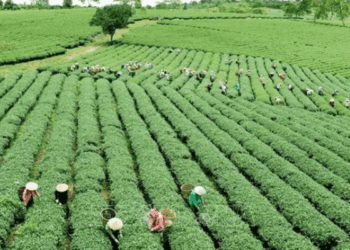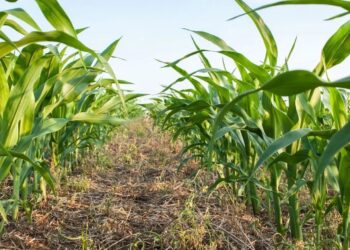Despite renewed interest among young people in embracing agriculture, Nigeria lag significantly behind global counterparts in adopting precision agriculture and other innovative practices.
Findings revealed a gap in the uptake of agricultural technology that could undermine Nigeria’s food security ambitions.
While countries like the United States, Brazil, China, Australia and the Netherlands are reaping enormous benefits from embracing smart farming methods, Nigeria’s agriculture sector remains largely dependent on traditional, labour-intensive practices.
The United States, with 28 per cent of its farmers using precision and other smart-agriculture tools has seen a 22 per cent increase in yields. While Brazil low-till practices, biologicals and precision agriculture hardware result in over 57 per cent increase in farmers’ income and a staggering 97 percent reduction in soil erosion.
Similarly, the Netherlands has recorded 30–40 per cent efficiency gains through cutting-edge technologies like advanced greenhouses, robotics and imaging tools.
China has achieved 60 per cent mechanisation with increased productivity, Australia over 79 per cent no-till farming, AI tools such as robotics pollination increased productivity.
However, in sharp contrast, Nigeria’s farming technology landscape tells a different story.
Studies show that less than 1 per cent of farming households own tractors, and only 6 per cent of arable land is irrigated. Concerning is a significant 70 per cent of farmers still depend on crude implements, indicating low mechanisation levels across the country.
A further findings showed that farmers in northern Nigeria, especially Gombe and Bauchi states indicate a high willingness to adopt precision agriculture technologies with rates of about 92 per cent in Gombe and 96 per cent in Bauchi. Farmers, particularly the younger generation, are open to embracing digital tools such as mobile applications, drones and precision inputs.
However, challenges such as high costs, lack of technical know-how, and limited access to financing persist, stifling actual adoption.
Arc Kabir Ibrahim, national president of the All Farmers Association of Nigeria (AFAN), stressed that the nation’s food production goals are unattainable without embracing modern farming techniques.
“I do not think we can achieve high yields or any meaningful productivity rise without innovation, which comprises the deployment of technology such as precision agriculture.
“The use of farming technology is quite low among smallholder farmers, the government must support them with tools and mechanisms to acquire modern innovations that can scale their productivity,” Ibrahim said.
While climate-induced challenges continue to take a toll on food production, Nigerian farmers cannot solely rely on the most commonly adopted innovations like; herbicide spraying, fertiliser application, pesticide use and improved seeds.
Jerry Tobi Olanrewaju, founder of Jet Farms and Agro Solution Ltd, shared similar concerns.
Having worked for over a decade at the intersection of technology and agriculture, Olanrewaju highlighted how tools like mobile disease detection apps, mechanised harvesting and digital marketing platforms are transforming farming outcomes.
According to him, the adoption level of these technologies remains very low among Nigerian farmers.
“At Jet FarmsNG, we use our platform Farm2C to improve visibility, traceability, and market access, our farmers now sell before harvest and receive real-time updates, which motivates smartphone ownership and use”, he explained.
He added that while adoption has improved since 2020, affordability and digital literacy remain critical barriers.
“Many farmers still can’t afford smartphones or data, that’s why capacity building and rural infrastructure are just as crucial as the tools themselves,” Olanrewaju added.
Despite having 77 per cent of its landmass classified as arable, Nigeria’s agriculture sector is not keeping pace with technological advancements.
According to researchers; Achoja Roland Onomu and Michael Aliber, the country suffers from low investment in agricultural technology and ineffective use of Information and Communication Technologies (ICTs).
With two years to the end of the federal government’s National Agricultural Technology Innovation Plan (NATIP), stakeholders are still advocating for a multi-pronged approach to scale up technology adoption in Nigeria’s agricultural sector.
Olanrewaju emphasised the need for inclusive innovation, “While adoption remains low, there is growing optimism, the government has a critical role to play, especially in making AgTech more affordable, accessible and scalable.
It’s not just about making technology available, it must also be affordable, relatable, and inclusive, especially for women, youth, and the most underserved communities.”





